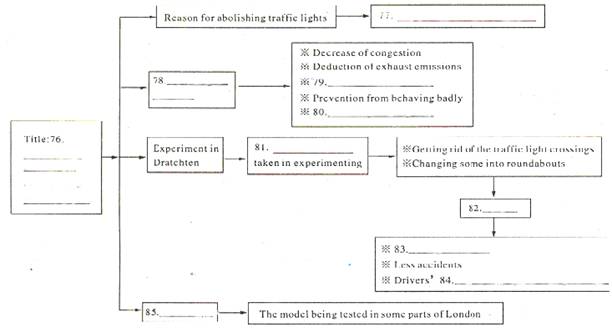题目内容
There are two factors which determine an individual’s intelligence. The first is the sort of brain he is born with. Human brains differ greatly, some being more capable than others. But no matter how good a brain he has to begin with, an individual will have a low order of intelligence unless he has opportunities to learn. So the second factor is what happens to the individual —the sort of environment in which he is brought up. If an individual is disabled environmentally, it is likely that his brain will fail to develop and he will never gain the level of intelligence of which he is capable.
The importance of environment in determining an individual’s intelligence can be shown by the case of the identical twins, Peter and Mark X. Being identical, the twins had identical brains at birth, and their growth processes were the same. When the twins were 3 months old, their parents died, and they were placed in separate homes. Peter was brought up by parents of low intelligence in an isolated(孤立的) community with poor educational opportunities. Mark was brought up in the home of well-to-do parents who had been to college. He was read to as a child, sent to good schools, and given every opportunity. The difference continued until the twins were in their late teens, when they’ve given tests to measure their intelligence. Mark’s IQ was 125.25 points higher than the average and fully 40 points higher than his identical brother. Given equal opportunities, the twins, having identical brains, would have tested at roughly the same level.
1.This selection can best be titled__________.
A. Measuring Your Intelligence
B. Intelligence and Environment
C. The Case of Peter and Mark
D. How the Brain Influences Intelligence
2. Of the following statements, which best gives the main idea of the passage?
A. Human brains differ greatly.
B. The brain the person is born with is important in determining his intelligence.
C. Environment is vital in determining a person’s intelligence.
D. Persons having identical brains will have roughly the same intelligence.
3. We can infer that people who are “identical”__________.
A. look exactly alike
B. don’t look alike
C. are brought up in the same family
D. are born in the same family
4. The case mentioned in the passage seems to support the conclusion that__________.
A. individuals with identical brains seldom test at the same level
B. an individual’s intelligence is determined only by his environment
C. children brought up under average conditions possess average intelligence
D. lack of opportunity prevents the growth of intelligence
5. The passage suggests that an individual’s IQ__________.
A. can be increased by education
B. is passed down from his parents
C. stays the same throughout his life
D. can be predicted at birth
解析:

 优质课堂快乐成长系列答案
优质课堂快乐成长系列答案